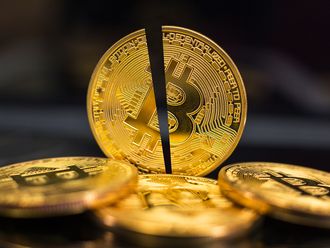By its very nature, procurement has always been at the forefront of technological developments in commerce as companies constantly try to improve effectiveness at all levels. The recent surge in blockchain applications has therefore inevitably sparked discussions about how this technology can be used to enhance procurement and supply operations.
The most basic description of a blockchain is a secure digital ledger on which transactions can be made and recorded. Digital ledgers of course are not a new concept, but the difference with blockchain technology is that it is not based on a single or central ledger but decentralised ones in which stakeholders on all sides of a transaction are able to make and record transactions. The technology has so far been synonymous with the digital currency bitcoin but its practical uses stretch beyond financial transactions. Practical applications of blockchain technology for the procurement and supply profession are numerous and can be grouped around two main areas;
Procure-to-Pay (P2P)
In the P2P sphere, blockchain technology would be perfectly suited to manage invoice payment and validation without the need for third party reconciliation. It could also be integrated into the management of Smart Contracts whereby contracts are executed automatically and performance of suppliers against service level agreements are managed and verified automatically. The tamper-proof nature of blockchains can enable automated transactions when preset conditions are met, eliminating the need for masses of paperwork and man-hours, and in the long term, helping to establish credible predictors of procurement patterns, and budget and inventory requirements.
Supplier Relationship Management
Risk Management, Pre-qualification and supplier Compliance are vital elements of the procurement cycle in the modern age. As blockchain allows continuous access to update records, data and information, this would prove to be an intuitive method of managing supplier validation processes in real time.
Stakeholder Protection
From a legal perspective, while internet-based databases enable each stage of the supply chain process to be logged and transmitted across stakeholders, what is particularly significant about a blockchain is that the verification and authentication of each transaction can be directly linked to the execution of the transaction itself.
The ‘trust layer’ in blockchains requiring authentication with each transaction before execution allows for real-time validations of transactions as they are processed and because blockchains cannot be unilaterally tampered with, the risk of fraud and malpractice can be reduced. Furthermore, the transparency and traceability features of blockchains can create a digital footprint with an interlocking set of digital passports throughout the entire production life cycle enabling auditability and, from a regulatory perspective, enabling governments and regulators to monitor best practice from ethical supply routes to shipping standards.
Emerging challenges
The major barrier to the effective adoption of blockchain in procurement processes and supply chains is the lack of common standards over blockchain use that are uniformly deployed cross-border and multi-jurisdictionally. Indeed this has been a core component of the conversation around regulation of blockchain in financial services and it is self-evident that the need for global standards are particularly required when dealing with international transportation and procurement processes. This will be the next frontier from a legal and regulatory perspective and key to whether blockchain technology becomes scalable commensurate with its potential.
Blockchains are already making their way into the field. Walmart experimented with the technology last year to track down contaminated food sources while Brighann Cotton are using blockchains to validate the delivery of cotton via sea freight with the information recorded on the blockchain automatically updating smart contracts linked to the transaction.
The practical uses of blockchains within the procurement and supply chain practice are numerous and there are ways that the technology can be used within the field that have not yet even been thought of. Such a solution with a ‘single version of the truth’ is a technology not for tomorrow but for today, and we believe it is here to stay.
— Sam Achampong, Regional Director, Chartered Institute of Procurement & Supply (CIPS) MENA, and Samuel Thampapillai, Financial Services Disputes & Investigations Associate, Eversheds.








_resources1_16a30b358e0_small.jpg)

